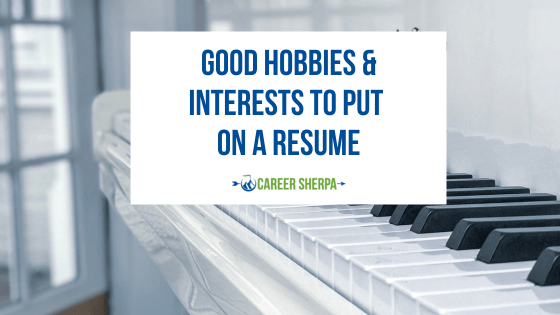
It can be hard to ascertain if it’s your resume, the job market, or who knows what else when you’re job hunting and your phone just isn’t ringing. Your mind begins to wander as you anxiously await an employer’s call or email.
Many job seekers have contacted us and said, âI think it’s my resume, but I’m not sure.” After reviewing their documents, we find ourselves telling them, “Yes, it’s your resume,” 99% of the time.
So, how do you know if it’s really your resume or if it’s something else?
Take a look at these six mistakes job seekers make on their resumes, and if one or more of them can be found on yours, that’s probably why your resume isn’t getting a response.
1. It Still Has An Objective Statement
An objective statement is a section of a resume that expresses your goal of securing a future position. What this statement fails to do, though, is substantiate your fit for the job openingâor articulate the value you offer to the employer should they choose you over another candidate.
Ditch the objective statement and utilize a personal branding statement and experience summary instead. An experience summary is a list of skills you have that are needed for the job you’re applying for. They’re hard skills and transferable skills, not soft skills.
By having an objective statement on your resume, you’re missing out on the opportunity to start proving your value to the employer within the first few seconds they glance at your resume, which is exactly the purpose of a personal branding statement and experience summary.
2. It Lacks Any Form Of Personal Branding

When employers read a resume, they need to see what attributes you bring to the position. It helps them differentiate between you and other viable candidates. Are you deadline-driven and customer-focused? These are important to employers and how they operate business. What is it that’s important to the employer from whom you’re seeking to obtain employment? And how do your expertise and experience correlate to their greatest need?
Personal branding is about how you market yourself to the potential employer. They have a need to fill, and you have to figure out how who you are and what you offer meet that needâthen effectively communicate that to the employer. If you can’t meet a need, then they won’t see the value in choosing you over another candidate who does.
3. It’s Fluffy

Your career summary and work history are full of fluff and filler words that could apply to every job seeker on the market. Here’s an example of what we mean:
Dynamic, results-focused IT specialist with broad-based expertise in project oversight, systems implementation, process improvements, and integrating cutting-edge technology that exceeds expectations. Proven ability to quickly analyze key business drivers and work directly with internal/external staff, leveraging a team-centered effort that increases profitability.
Sure, it might sound good, but it hasn’t told us anything specific about who this candidate is, their experience/expertise, and what they offer the employer. It would be better to address how many projects the candidate has overseen, which processes they improved, the outcome of the improvement, and how the cutting-edge technology they integrated exceeded expectations. But just saying they exceed expectations is vague; tell us which expectations were exceeded and by how much.
4. Skills & Accomplishments Are Not Highlighted

The top third of your resume is the most important section when the hiring manager is giving it his or her initial scan. This is your prime opportunity to market your skills and achievements. Remember the experience summary we mentioned above? That’s where you’ll write the skills you possess that are needed to succeed in this particular job.
Highlighting your skills in the experience summary will draw the hiring manager in and entice them to keep reading. Then, as their eyes move down your resume, they’ll see all of your accomplishments underneath your work history. What career successes are you most proud of that correlate to the job you’re applying for?
5. Duties And Responsibilities Have Taken Over

Bullet points that only share basic duties and responsibilities fall short every time. Maximize the space on your resume by using the STAR method (situation, task, action, result).
Talk about the challenges you faced, how you addressed them, and what the outcomes were. This makes the information contained within your resume much more impactful.
6. Metrics, Facts, And Figures Are Nowhere To Be Found

Give the employer something to remember you by. Don’t just tell them you reduced costs. State a percentage or dollar amount. Manage projects or clients? Put a number to it. Ask yourself questions like how much, how many, and for how long? This is how you quantify your work experience on your resume. It’s the secret to getting a call from an employer.
Asking yourself questions like the ones above leads to answers that help you define your successes, develop your personal brand, and market yourself more effectively to potential employers.
Review your resume with the six points above in mind. Ask yourself if your resume reflects any of the above. If it does, then use the tips and advice we’ve provided to correct the issues within your resumeâand ultimately improve its response rate.
Need more help with your job search?
Become a member to learn how to land a job and UNLEASH your true potential to get what you want from work!
This article was originally published at an earlier date.












































